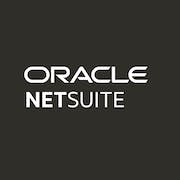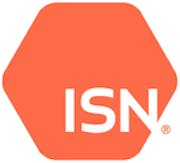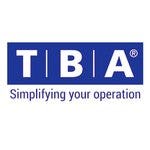Introduction to Warehouse Management Software
In today's fast-paced business environment, efficient warehouse management is key to success. With increased demand for faster delivery times and higher accuracy, the right software can make all the difference. But with so many options on the market, choosing the best warehouse management software for your business can be a daunting task. That's why we've created this guide to help you navigate the world of WMS and find the perfect fit for your needs. In this guide, we will explore the features and benefits of various WMS solutions, as well as provide tips for evaluating and selecting the best software for your business. Whether you are a small business owner or part of a large enterprise, this guide will help you make an informed decision and take your warehouse management to the next level.
What is Warehouse Management Software
Warehouse management software is a powerful tool used by organizations to manage their inventory and warehouse operations effectively. It is a software solution designed to optimize warehouse functionality by automating processes such as receiving and storing products, tracking inventory levels, and order fulfillment. The software ensures that material handling and warehouse operations are streamlined to increase efficiency and reduce costs. It allows organizations to control and track their inventory in real-time, optimizing warehouse space and ensuring goods are delivered on time. Common use cases for Warehouse Management Software include: - Inventory control and tracking: The software helps organizations track and manage their inventory, including receiving and stocking products, tracking inventory levels in real-time, and managing order fulfillment. - Order management: Warehouse Management Software automates order fulfillment processes, including picking, packing, and shipping, resulting in faster order delivery and improved customer satisfaction. - Labor management: The software can help organizations manage their workforce more efficiently, utilizing labor resources effectively and reducing unnecessary expenses. - Data visibility and reporting: Warehouse Management Software provides real-time data visualization and reporting capabilities, allowing organizations to identify performance trends and make data-driven decisions. Companies across a wide range of industries, including manufacturing, retail, logistics, and e-commerce, use Warehouse Management Software. It is particularly useful for businesses dealing with high volumes of inventory, labor-intensive workflows, and complex supply chain operations. Warehouse Management Software is also beneficial for any company seeking to optimize their warehouse operations, improve inventory accuracy, and reduce operating costs.
Benefits of Warehouse Management Software
Warehouse management software (WMS) is an indispensable tool for businesses of all sizes that manage inventory. In today's fast-paced business environment, it's vital to have the ability to manage goods efficiently and effectively. WMS software automates the process of managing and tracking inventory, making it much easier to keep track of products from the moment they enter the warehouse to the moment they leave. Here are some of the main benefits of using Warehouse Management Software: - Improved inventory accuracy: With warehouse management software, businesses can achieve an unprecedented level of inventory accuracy. By using real-time data, businesses can stay up-to-date on the location and quantity of all their products. This enables businesses to make informed decisions and anticipate supply chain issues before they occur. - Increased efficiency: By automating many warehouse processes, WMS software increases the efficiency of warehouse operations. For instance, businesses can save time and streamline processes by automating receiving, stocking, and shipping procedures. By using mobile devices and barcode scanning technology, employees can easily locate products, reducing the time needed to complete tasks. - Enhanced customer service: By using WMS software, businesses can provide faster, more reliable delivery of goods and services, resulting in enhanced customer service. With real-time inventory data, businesses can quickly identify and resolve supply chain issues and ensure their customers receive their orders in a timely manner. - Lower costs: By optimizing inventory levels and increasing efficiency, businesses can save on labour costs, reduce inventory carrying costs, and minimize the expense of lost or misplaced goods. By using WMS software, businesses can also prevent overstocking, which minimizes excess inventory and the expenses that come with it. - Better decision-making: WMS software provides businesses with a wealth of data that can be used to make informed decisions. By using real-time inventory data and advanced analytics, businesses can gain insights into their supply chain, identify inefficiencies, and optimize processes. In summary, warehouse management software offers numerous benefits to businesses of all sizes. From improved inventory accuracy to lower costs and enhanced customer service, WMS software is essential for businesses looking to streamline warehouse operations, stay competitive, and drive growth.
Features of Warehouse Management Software
Warehouse management software has become a vital part of modern-day business operations. It enables organizations to manage inventory and track goods throughout the supply chain, streamlining the process and increasing efficiency. While there are several features that different warehouse management software may offer, here are ten key common features that are essential for businesses: 1. Inventory Management: Enables a company to track inventory levels, orders, sales, and deliveries, ensuring that inventory is properly organized and managed. 2. Barcode Scanning: Using barcode scanners with warehouse management software makes tasks such as receiving, picking, shipping, and counting of inventory faster, accurate, and more efficient. 3. Order Fulfillment: The software should have the ability to manage and fulfill orders, including picking, packing, and shipping while also allowing for easy tracking of orders in real-time. 4. Real-Time Visibility: With real-time visibility of your inventory levels, you can make better decisions, adjust stock levels based on demand, and reduce out-of-stock situations. 5. Reporting and Analysis: Warehouse management software that allows for reporting and analysis gives users the ability to identify trends in sales, inventory levels, orders, and much more. 6. Integration: A good warehouse management system should be able to integrate with other software systems, such as accounting and enterprise resource planning (ERP) systems, streamlining business operations. 7. Supply Chain Visibility: It should provide supply chain visibility and allow for end-to-end tracking enabling you to trace the product from the point of origin to the end-point. 8. Accessibility: It should be accessible from anywhere via mobile devices or web browsers, allowing employees to work remotely or on-the-go. 9. Security: Warehouses contain valuable inventory and customer information; the system should include security features such as password protection and restricted access levels to safeguard against cyber threats. 10. Scalability: As businesses expand, so do inventory levels, order volumes, and supply chain complexity. The warehouse management system must be able to scale up/down to accommodate inventory growth or any operational changes. Having a warehouse management system that includes these features will simplify the tracking of inventory and enhance overall supply chain management for any business organization.
Considerations of Warehouse Management Software
Warehouse management software (WMS) is a critical tool for businesses that want to optimize inventory management and streamline warehouse operations. But with so many options available, it can be challenging to choose the right one for your business. Here are some of the essential factors to consider before purchasing warehouse management software. 1. Scalability: Your warehouse management software should be scalable to grow with your business. Choose a software that can accommodate changes in your inventory, order volume and workflow over time. It is important to ensure that the software vendor provides updates and add-ons when your organization grows. 2. Integration capability: The software should be able to integrate seamlessly with other systems, from ERP software and accounting software to shipping software. This integration can help eliminate manual data entry and increase efficiency by automating processes. 3. User Interface: A complex and confusing user interface can be an obstacle to using the software effectively. Select a user-friendly and intuitive WMS that is easy to learn and navigate. Training new staff members will require less time, saving costs in the long run. 4. Accurate tracking and management: The warehouse management software should efficiently help with the tracking of inventory levels and movement, and clearly highlight items that need to be replenished. It should also provide for real-time updates to reduce inventory discrepancies and errors. 5. Cost comparisons: There are many options on offer with warehouse management software and weighing the pros and cons of each can be tedious; however, it is important to compare costs and determine which solution offers the most value for the business. 6. Technical support: It is imperative to ensure that technical support is provided and readily available in the event of any software issues. 7. Security: When assessing prospective warehouse management software, it is important to evaluate data security and disaster recovery strategies. Your organization’s data must be secure, backed up regularly and protected against accidental deletion, data breaches, and natural disasters. Overall, choosing the right warehouse management software requires businesses to understand their unique requirements and what they hope to achieve from the software purchase. Balancing software features, scalability, integration capability, user interface and technical support, while maintaining data security is key to ensure the selected software meets the needs of your business.
Software Trends for Warehouse Management Software
Warehouse management software systems have come a long way over the last few years, and 2023 promises to push things forward even further. The continued rise of e-commerce has put enormous pressure on supply chain operations to become more efficient, while customers demand ever-faster and more eco-friendly delivery options. This has made it critical for warehouse management systems to incorporate the latest technologies to keep pace with evolving demands. Gamification, automation, robotics, and pick-to-light systems are just a few of the technologies that are being incorporated into such systems to increase efficiency and reduce cost. Alongside this, predictive analytics and modeling software are making a significant impact on supply chain optimization, helping companies to make informed decisions around inventory and space management. As we move towards 2023 and beyond, it is clear that businesses that are embracing smart warehousing solutions will be at a competitive advantage, delivering better experiences, improving sustainability, and reducing costs.










